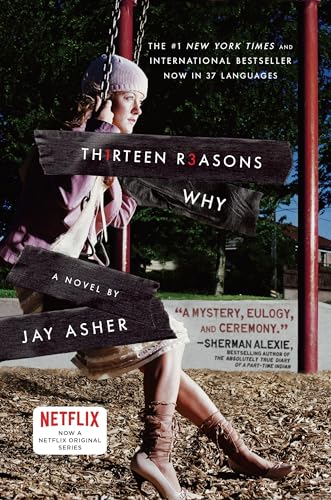
Thirteen Reasons Why
I have very mixed feelings about this book. I think it handles a lot of issues with delicacy and appropriate gravitas – understanding consent, with no hint of “boys will be boys” or anything – but the very premise is really concerning to me. As a YA book, especially, its premise of a girl who’s killed herself and left tapes to point the blame at other people is worrying. Having had my own struggles with depression in adolescence, I think that the idea of weaponized suicide is dangerous and could be easily seductive to a kid who has those same struggles. The line between recognizing the consequences of our actions and saying “ You are to blame for this person’s suicide” is a tough one to find, but I think it has to be drawn.
SpoilerWeak spoiler, I guess: in the end, I think the focus on listening, reaching out, not just watching things happen to people is a good one. I think the lesson Clay learned, shown as he tries to reach out to someone else he thought might be troubled, is alright. But it feels secondary to the overarching narrative of punitive suicide.
I also think that Hannah was portrayed as far too lucid and balanced. Her decision is presented as a rational one, when in reality the mindset needed to actually do something like this is the opposite of rational, and while it’s good to express sympathy, it’s dangerous to treat such actions that way.
I’m not the kind of person who says “let’s not let our kids read things like this,” because … well, that’s stupid. But I did have concerns about how the core premise was presented, and I think it’s the sort of thing that, if I had a kid reading it, I’d probably want to discuss with him or her.
I also thought there were some minor issues with two-dimensional characters, and the kind of strange connection between Clay and Hannah (which felt forced).
I think it’s probably worth reading (it’s pretty short, if nothing else), but with a lot of caveats.